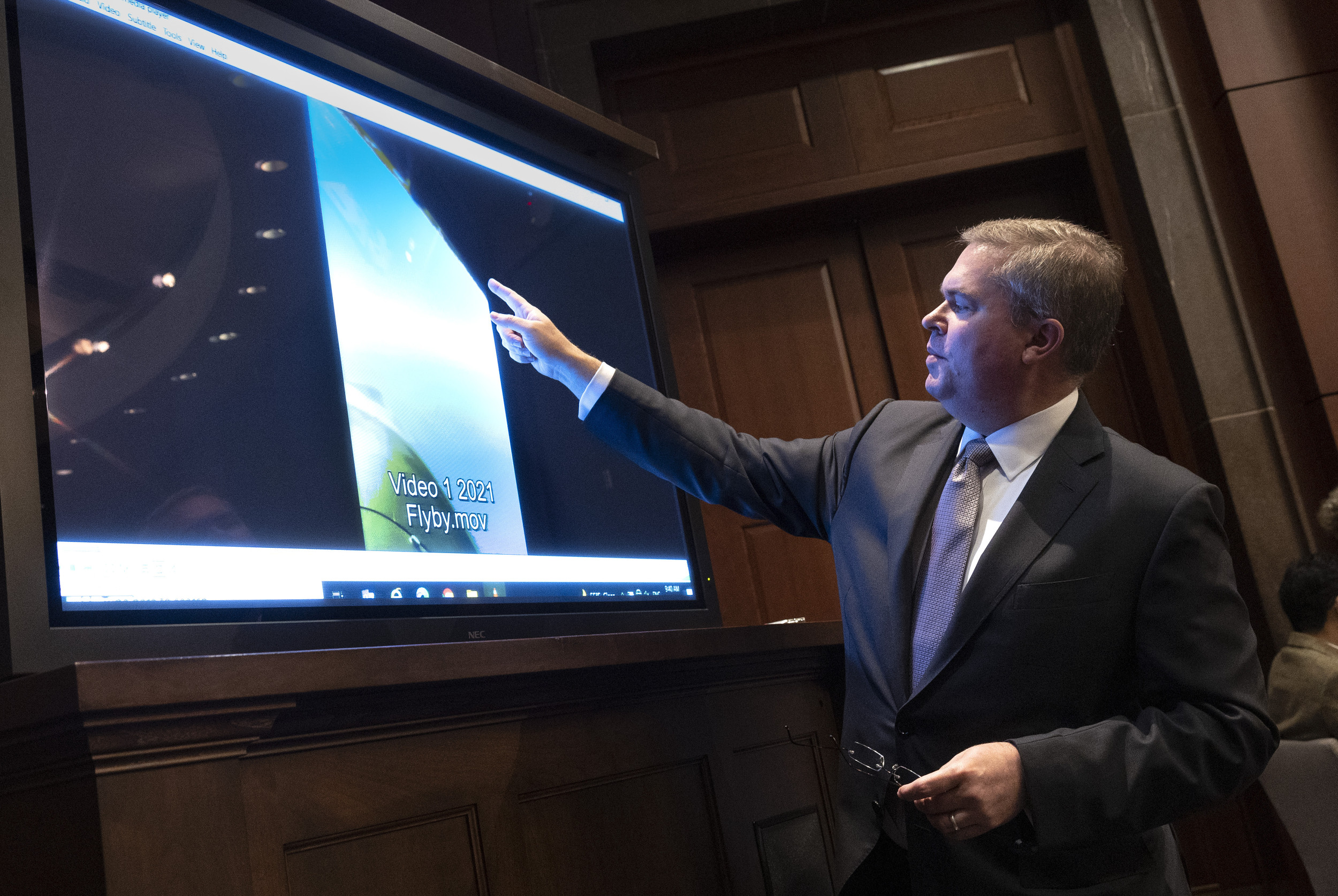UFO Claims Demand Skepticism—And Investigation
Congress is advancing legislation ordering government contractors to hand over any information about “non-earth origin or exotic unidentified anomalous phenomena,” or UAP, better known as UFOs. The bill, recently approved by the Senate‘s intelligence committee, follows claims by David Grusch, a whistleblower who analyzed UAP as part of a Pentagon task force, that the government has attempted to reverse-engineer craft of “non-human origin.”
Some regard these sensational developments as fresh evidence that Congress has fallen victim to hysteria. Yet to dismiss them entirely ignores the serious work done by lawmakers to yield conclusive answers to this enduring mystery.
In fact, UAP whistleblowers have begun to step forward because a rather boring law now permits them to. Before, insiders—who hold security clearances and sensitive government posts—faced retaliation and litigation for breaking their secrecy oaths and confidentiality agreements. Now, whistleblowers have immunity to share information with a Pentagon office called the All-Domain Anomaly Resolution Office, or AARO, which Congress created in 2021. Meant to serve as the government’s clearinghouse for everything UAP-related, AARO is required to gather and analyze these claims and report to Congress.
No hard evidence has emerged to back these latest assertions. But they share an uncanny resemblance to others. In 2020, Eric Davis, a Pentagon contractor and adjunct physics professor at Baylor University, described briefing Defense Department officials on retrievals of “off-world vehicles not made on this earth.” Christopher Mellon, former deputy assistant secretary of defense for intelligence, echoed rumors of “crash materials” that the government is attempting to “reverse engineer.” His colleague Luis Elizondo, who once headed the Pentagon’s UAP investigation, claimed that the government possesses “exotic material associated with UAP.” Like the pending bill, the law shielding whistleblowers requires AARO to collect data about “material retrieval” and “reverse engineering.”
Nonetheless, that information might not be reaching Congress or the public. Some whistleblowers mistrust AARO as an honest broker and remain fearful. At a UAP hearing last year, Pentagon witnesses refused to answer basic questions in an unclassified session, while appearing unfamiliar with the long-suspected link between UAP sightings and nuclear technology.
The pending bill ratchets up the pressure for UAP transparency, but the president and Congress must do more.
President Joe Biden should lead by signaling that the administration will cooperate with Congress, and that whistleblowers will face neither retaliation nor prosecution. After all, the more who come forward, the easier it will be to corroborate—or refute—their claims. There is both safety and fidelity in numbers.
Recent actions suggest that the president has begun to give the topic credence. Following February’s take-down of several initially unidentified airborne objects over North America, President Biden ordered the National Security Council to craft policies for the detection, analysis, and disposition of UAP.

Kevin Dietsch/Getty Images
Such attention is warranted. But whatever the council has done since remains cloaked in secrecy. Much of its work necessarily is protected by security concerns but also executive privilege—the doctrine that presidents and key advisers may deliberate privately without fear of exposure. But AARO was created precisely to relay information to Congress, a purpose defeated if its work moves to the White House and falls under the privilege’s dead hand. Rather than duplicate AARO, the administration should ensure that the office is fully resourced, prioritized, and informed.
In Congress, both sides of the aisle have worked together, holding hearings and passing the historic legislation establishing AARO. More hearings are planned. So far, none have called witnesses outside the tight-lipped Pentagon. To promote dialogue, experts like Davis, Mellon, and Elizondo should testify, in addition to credible whistleblowers who can field tough questions. Congress also should charge the intelligence community inspector general with investigating reports that federal dollars were spent on UAP programs without congressional appropriation, a potential violation of the Constitution.
Further action should strengthen AARO—which initially lacked funding and still needs a public website to receive reports—by ensuring that its director can obtain information across the government and private sector.
Although the intelligence bill seeks to correct this deficiency by granting AARO access to compartmentalized secret programs, enticements for whistleblowers could prove more effective. Unlike whistleblower statutes governing violations of anti-money laundering and securities laws, UAP whistleblowers are not expressly eligible for monetary awards; the bill would, however, separately entitle them to damages for certain forms of retaliation. Paired with penalties for the destruction or withholding of required information—also absent in the current legislation—monetary incentives for reporting such misconduct could force information to AARO without making it wander a labyrinth of black projects looking for answers.
Ultimately, if AARO proves inadequate, Congress should follow the facts where they lead and empanel a special investigative committee modeled on the Senate’s Church Committee, which in the 1970s uncovered rampant abuses by the intelligence agencies.
As more UAP whistleblowers surface, transparency, not obfuscation, must be the order of the day.
Dillon Guthrie is an attorney and served as a counsel at the Federal Reserve Bank of New York, an advisor on the Senate Committee on Foreign Relations, and a legislative aide to then-Senator John Kerry.
The views expressed in this article are the writer’s own.
Update (7/3/23, 1:20 PM EST)


